The Fame Festival which is going to take place between the 19th and 24th of September in Brussels aims to put forward the artistic work of women and gender minorities so as to give visibility to alternative perspectives and visions on the world. I met with Camille (she) and Eff (they), two out of the seven people working on this project so as to discuss the vision, methodology and objectives behind the festival.
Where did the idea of the festival come from and how was the project built?
Camille: Fame Festival came from the initiative of Delphine Houba (the alderwoman for culture in Brussels) in partnership with the Riches-Claires Theater who wanted to support the artistic work of women and gender minorities in creating a new art festival.
When our team started working on the name and general idea behind it, one of the most important thing we wanted to focus on was to create an interdisciplinary performing arts festival based on a feminist methodology rather than just another feminist event.
So, our main goal is to develop a festival of arts and culture, not an activist festival.
But the fact is that there is a commitment in the way of programming, in the political positioning of the festival, in the recruitment of the team and at many different levels there is special attention to political issues. Indeed, the objectives of the festival have been defined based on different observations and academic studies which were carried out in the lasts years, in particular the study carried out by “Ecarlate la compagnie”, “La Chaufferie acte un”, and the university of Liege which highlights inequalities between men and women in the performance arts field.
Basically, this study shows that there are as many women as men entering art schools, but as their career progress, there are less and less women on stage or who have long careers. In addition to that, there are fewer women with management positions in theatres. Indeed, most jobs with responsibility, or of symbolic value and economic power are mainly occupied by men.
So when we built the festival, the idea was to make it large in scale, for the general public, not only a small niche festival. For that reason, we worked on a program that is both international and local in order to support Belgian artists, and artists living in Belgium, including experienced as well as emerging artists. And the aim is really to abolish the categories and hierarchies that can be present in this field.
So you mentioned it earlier, this is a festival of arts and culture not a feminist festival, can you tell us a bit more about that?
Camille: For us it was important to separate both spheres (art and activism), because there are also many ways to connect both of them and create dialogues between them.
So, there is the artistic field, the activist and the academic one and then what is interesting is how does all these spheres circulate and connect together.
And the reason why this is not a feminist festival but rather in dialogue with feminisms, is because we did not want to force the artists to only speak about gender, sexuality, violence, or activism but rather encourage artistic works on any subjects but through their own prism, with their own perspective of the world, so as to come up with new imaginary, new ways of looking at the world.
Eff: However, our methodology is clearly feminist. Because in the end, that’s what feminism is all about, it’s about developing tools to question power dynamics and creating new ones instead.
Have you encountered any obstacles in the creation of the festival? And how did you deal with them?
Camille: One of the main issues is to define the rightest political and ethical positioning. We believe in queering the categories, in abolishing normative hierarchies. The festival aims to link institutions, activists, artists, academics, professionals and amateurs, more or less marginalised. Those are spheres that or not easy to link together in a way that does not reproduce systemic violence, especially when we also inherit from this system.
However, since the festival is new, it is the opportunity not to change an institution from the inside, but to create another kind of institution, more open, less vertical, a space where there is dialogue, where criticism is heard and part of the process, that doesn’t ignore that other people and other collectives work in the same direction.
According to you, what does it entail to be a woman/minority and an artist today?
Camille: I think, one of the biggest problem is that there is a form of essentialisation of people regarding these questions. For example, festivals or conferences will program women to talk about sexism or racialised people to talk about decolonial issues but in fact there are artists who would like to talk about other stuff too.
It feels like the only way for institutions to include minorities is by restricting them to talk about systemic violence stemming from their own identity. With Fame Festival, we told artists: don’t just talk about your identities, talk about any subject you want but from your own perspective.
Eff: Also as a trans person, I feel that people don’t understand our struggles, our identities, our experiences. As you just mentioned it, the only time people address our issues is often through the prism of violence, but when I think about my experience as a trans person, I don’t think about violence, I think about the unconditional love that I have found through my community. And I’m so sad that people don’t know that, people just summarise my existence as prostitution, living on the street and dying, it’s so sad because we have much more to bring to the world through our experiences as queer people than just giving conferences about violence or discrimination.
In the end, one of the important thing about arts and culture is that it actually shapes our imaginations of the world. With this festival, the idea is to say: art can, of course, be critical sometimes, but it can also offer new and alternative models, different perspectives and ways of looking at the world.
The Fame Festival will take place from 19 – 24 of September in Brussels (Riches-Claires, KVS, Tour à Plomb, Montagne Magique, Bellone, Cinematek and Plaine du Quai à la Houille).
More information on their website: https://famefestival.be/fr/accueil/ and Instagram: @fame_festival
Study mentioned in this article:
Eyckmans, G., Grandry, C., Lowies, J-G., Poisot, E. (2020). Les arts de la scène sous le prisme du genre et de la diversité (https://acte3-4.deuxiemescene.be/wp- content/uploads/2020/10/Rapport-final-Presence-des-femmes-Arts-de-la-scene.pdf)
Further resources on this topic:
Study conducted by Raphaëlle Doyon on the professional trajectories of women artists in the dramatic arts scene: http://www.hf-idf.org/2015/03/16/les-trajectoires-professionnelles-des- artistes-femmes-en-art-dramatique-par-raphelle-doyon-chargee-detude
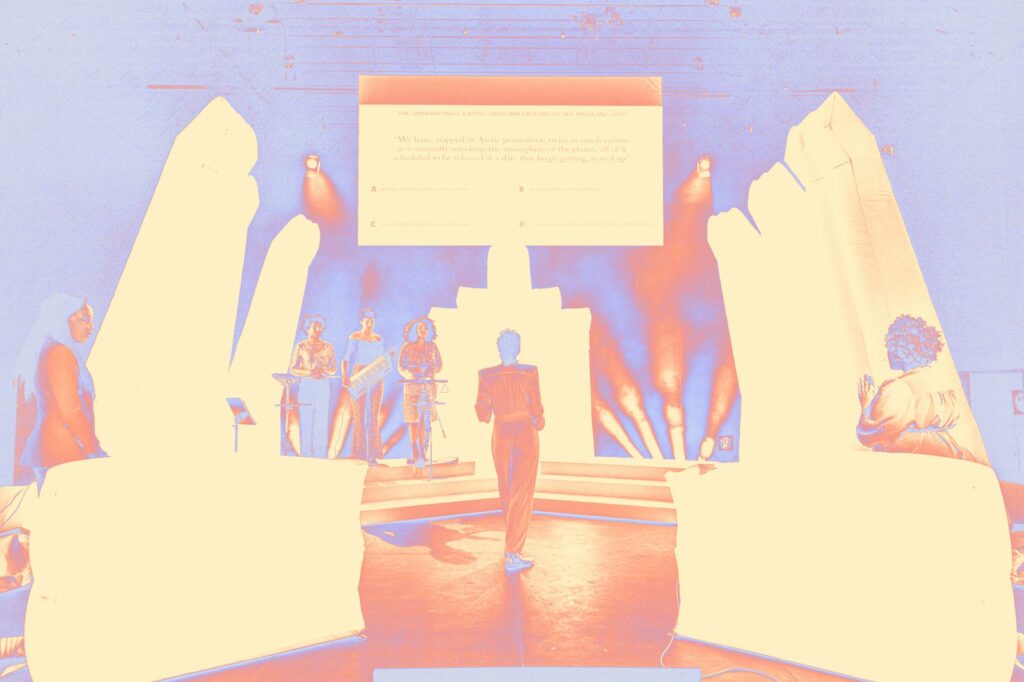
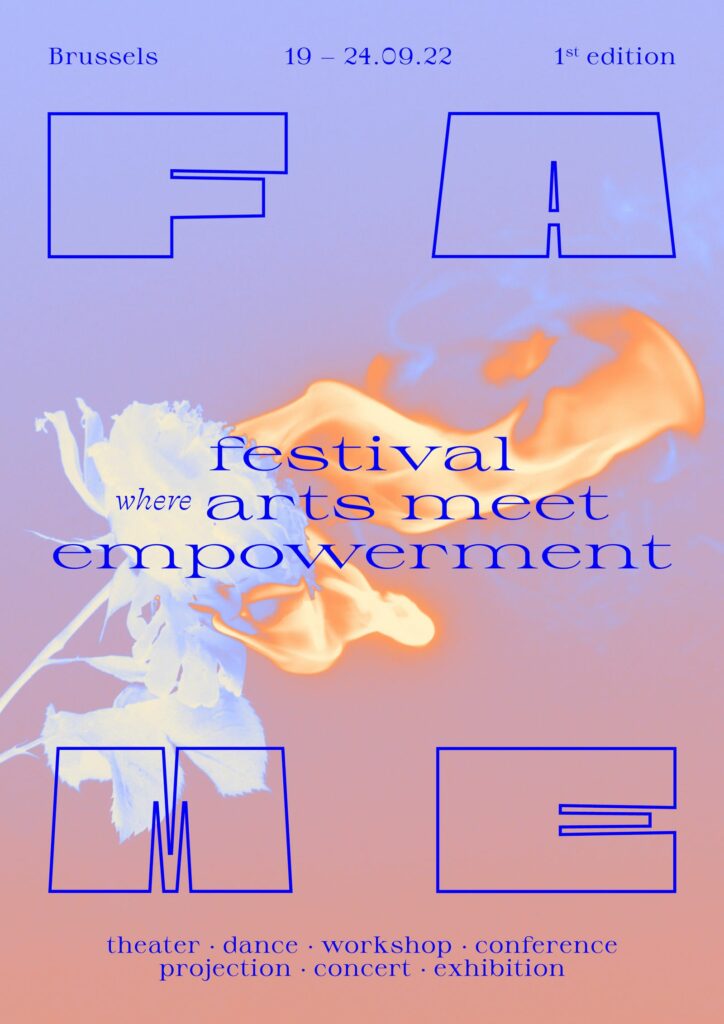
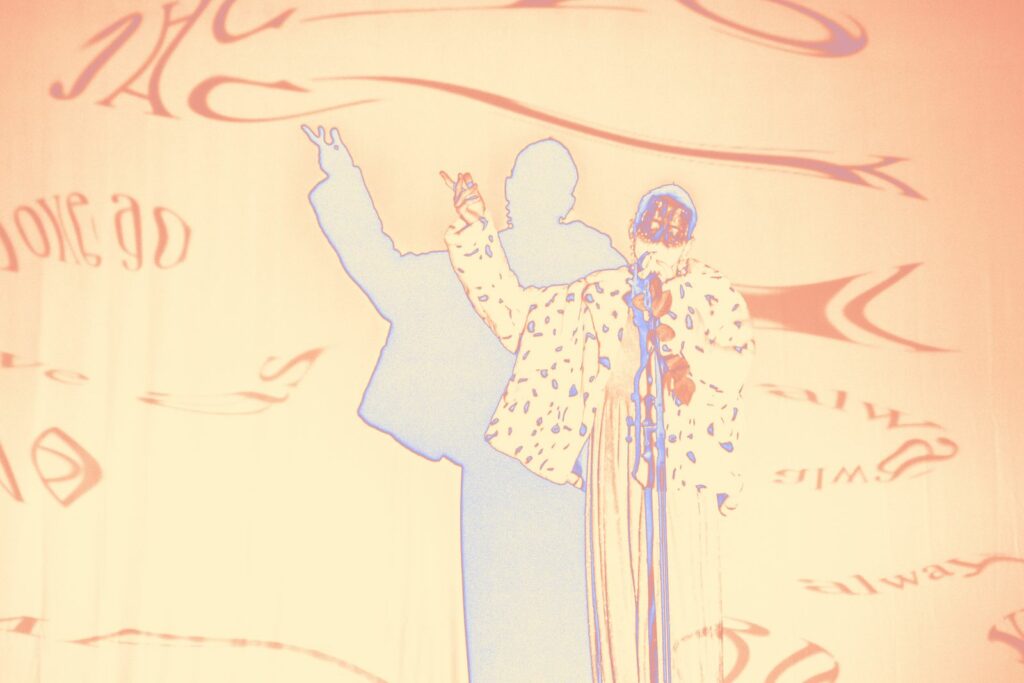
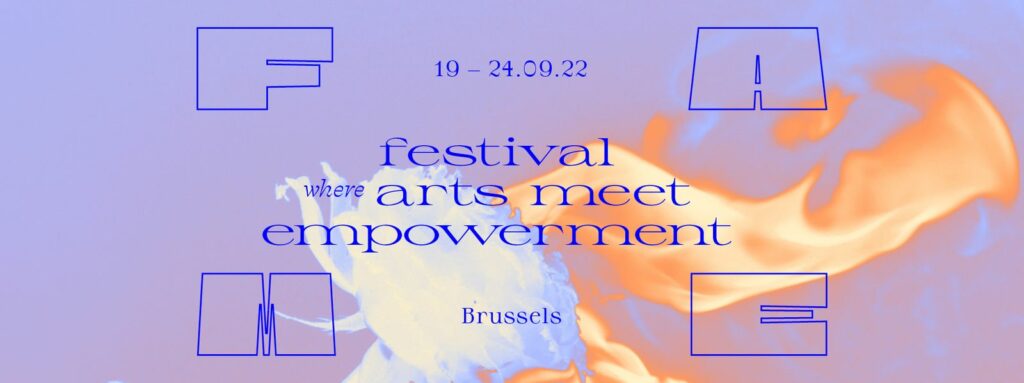
You may also like
-
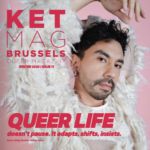
The New KET Is Out: Queer Brussels Keeps Moving
KET Magazine Issue 11 is out now and available in LGBTQIA+ safe spaces across Brussels,
-
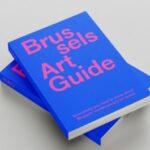
Brussels Art Guide 2026: Mapping a Vibrant Contemporary Scene
Brussels is once again putting its contemporary art scene in the spotlight with the new
-

What is Sex-Positive Belgium?
Sex-Positive Belgium is a growing, real-life community of open-minded people who embrace a sex-positive philosophy. It welcomes
-

“Bi+ Equal: Europe’s First Platform Uniting Bi+ Communities Across Borders”
Bi+ Equal is the first-ever bi+ structure at the European level, a new platform created
-

“From Borders to Belonging: How Arc-en-Ciel International Guides LGBTQIA+ Migrants to Safety and Community”
Arc-en-Ciel International Rainbow (AIR) is an online platform created for and with LGBTQIA+ migrants, refugees

